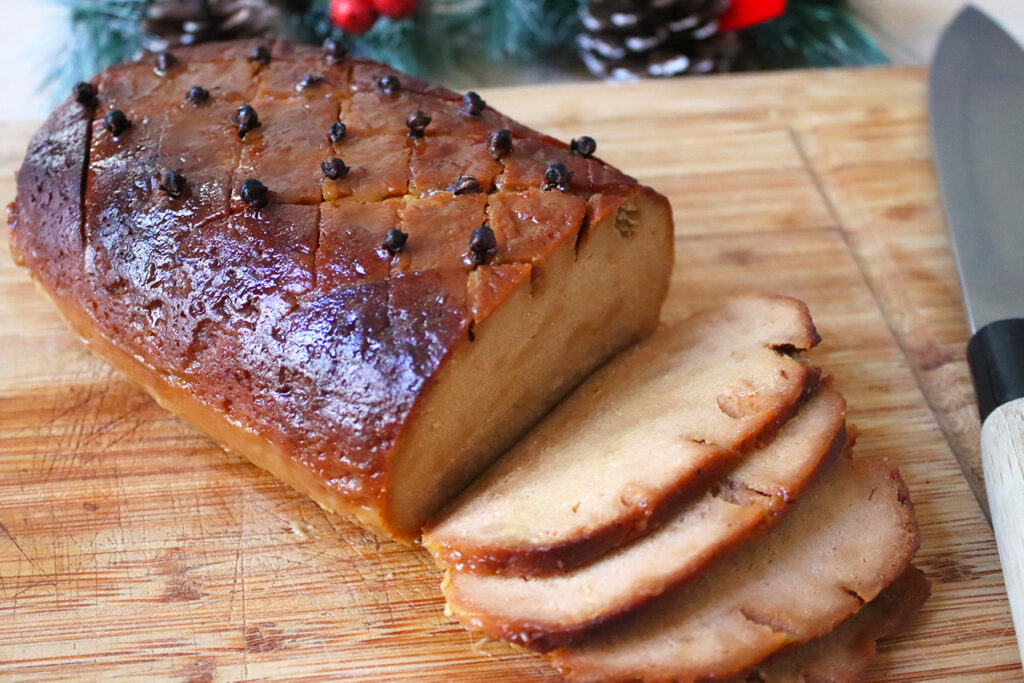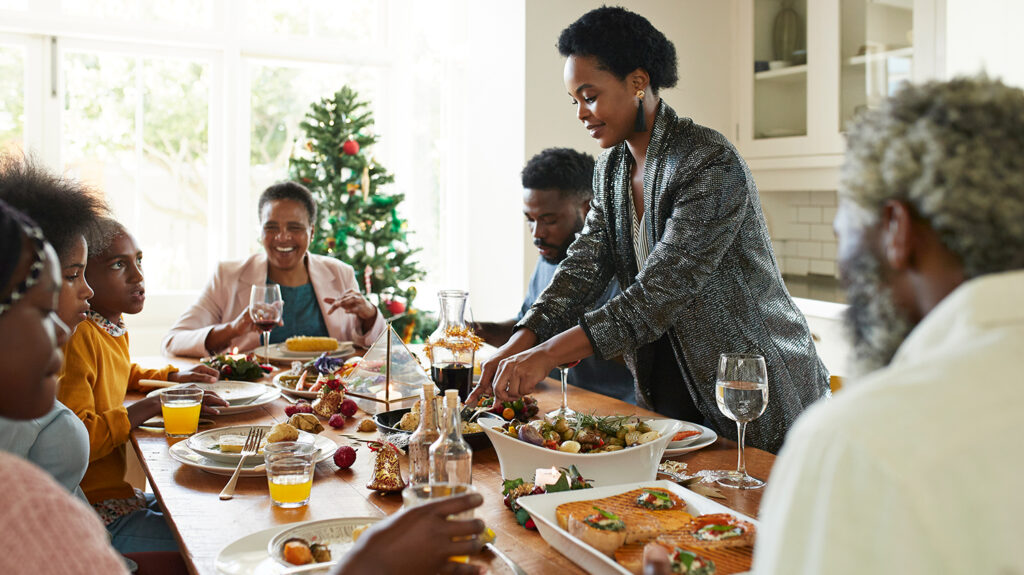Some of my fondest memories and favorite meals are tied to this time of the year. In the African American community, the holidays have always been regarded as a time of homecoming and revelry. It’s a special time for my family, since both of my grandparents were married on Christmas Eve. Every year, our entire family comes together in Virginia to celebrate their anniversaries, along with the rest of our holiday festivities.
We’d all gather at my grandparents’ house and there would be singing, dancing, and an endless flow of friends and family bringing gifts and food. For me, this night was better than Christmas Day since I was always more excited about the plates than the presents.
Whether we were celebrating a birthday or a Christmas party, the kitchen was always the heart of the celebration. It was the hub of the holidays, brimming with the heat of the oven, the aromas of freshly-roasted vegetables, the laughter of kids running about, and the legacy of generations cooking together using recipes passed down through our family.
We would wait all year for Great Grandpa’s peanut soup, Grandma Serina’s corn pudding, Grandpa Steve’s sweet but tangy mustard glaze for the ham, and of course, Grandma Virginia’s candied yams. With the exception of a few dishes, many of the dishes on our holiday table were vegetarian.
Growing up, I often wondered—and complained about—why the menu rarely changed. However, I now understand that these time-honored dishes were part of the tradition in the first place.
As Adrian Miller, author of Soul Food: The Surprising Story of an American Cuisine, One Plate at a Time, explains: “Holiday food is inextricable from soul food, which is essentially the celebration food of the rural South.”
As with most soul food, there is a thread in these dishes that leads back to the foodways of slavery, but the foods that create the traditional southern African American holiday plate are a representation of freedom and the culinary creativity of liberated slaves.
For the most part, the diet of enslaved Blacks was mostly vegetarian, since ample meat protein was not common to come by for those who could not control their own diets or access their choice of foods. However, during antebellum winter harvest celebrations, they were allowed to commune with other slaves and enjoy foods like turkey, the rare hot wheat rolls, sugary desserts, and ham.
As freed Blacks ventured North, their recipes and traditions migrated with them. They used this cuisine and its dishes to create a sense of culture and connection within their new communities. These dishes have been passed from generation to generation, becoming an intricate part of southern African American celebration culture and adorning our personal narratives.
While my holiday menu this December remains unchanged, I’m switching up the base ingredients in my grandparents’ legendary recipes. This year, my sweet corn crème brulée, classic smothered pork chops, turkey with cranberry sauce, and mustard-glazed holiday ham are all plant-based. By creating vegan adaptations of these traditional holiday dishes, I’m able to simultaneously honor the heritage in these recipes and channel the culinary inequity my ancestors faced. I’m sharing this warm, refined, nourishing spread that celebrates the joy, love, resilience, and compassion of my food history.
4 Black Southern Recipes Made Vegan






